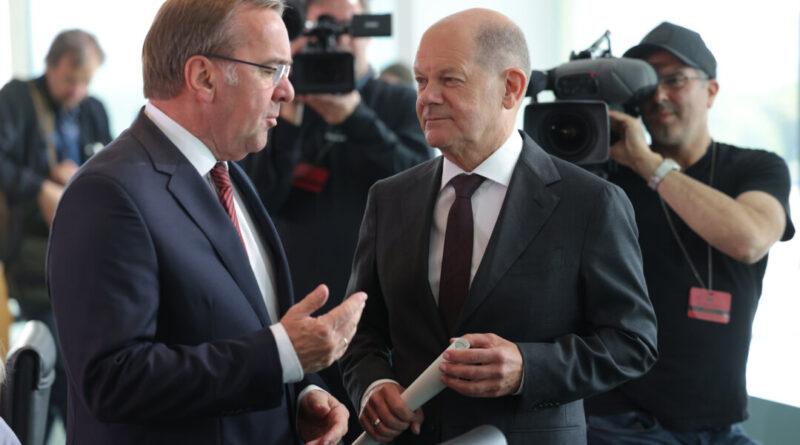Germany Suggests Implementing Selective Military Service to Strengthen Defense
Men would be required to complete a questionnaire assessing their interest and suitability for military service; this process would be voluntary for women.
Germany’s defense minister has put forth a proposal that focuses on selective military service for volunteers to bolster its diminished armed forces amidst tensions with Russia, following widespread opposition to reinstating conscription.
The proposal is part of Germany’s transition to a more assertive foreign and defense policy, announced by Chancellor Olaf Scholz as a “turn of era” in the aftermath of Russia’s invasion of Ukraine in February 2022.
About 13 years after Germany halted widespread conscription, Defense Minister Boris Pistorus stated that upon reaching 18 years of age, all men would be required to complete a survey to assess their suitability for and interest in military service. The survey would be optional for women.
Approximately 10 percent of those surveyed would be selected for potential service, with the final decision focusing on the most suitable and motivated candidates for a six-month basic service, extendable by up to 17 months.
“Those who exhibit the most suitability and motivation should be chosen for military service,” Mr. Pistorius informed the press.
This new approach aims to increase the number of young individuals undertaking voluntary military service to 15,000 in the first year, an increase of 5,000, with plans to raise this number annually, the ministry reported.
The goal is to eventually increase the number of reservists by 200,000, allowing Germany to rapidly expand its troops to around 460,000 in times of conflict—nearly double its current capacity. Presently, it has 180,000 soldiers, aiming to raise this to 203,000 alongside 60,000 reservists.
Even then, Germany would still fall short of the 500,000 troops and 800,000 reservists of the former West Germany during the Cold War era.
“Regardless of how well-equipped our armed forces are … the deterrence principle can only be effective if there are enough soldiers capable of defending the country when necessary,” Mr. Pistorius emphasized.
The minister has pledged to transform Germany into a country ready for war, cautioning that a conflict between the NATO western defense alliance and Russia could occur in five to eight years.
First Step Toward Conscription?
The approach mirrors that of Sweden, which was introduced in 2018 to elevate the status of military service through exclusivity and incentives. Those opting for longer service in Germany would receive a bonus, according to Mr. Pistorius.
It remains to be seen if Germany will follow Sweden’s path and mandate unwilling individuals to serve if an adequate number of volunteers cannot be found—something currently deemed unnecessary, as stated by the minister.
He added that a discussion about mandatory military service might be necessary eventually but is not timely, especially with upcoming elections requiring extensive political debate.
“I view this as an initial step,” he remarked.
Mr. Pistorius, currently one of Germany’s most popular politicians, has criticized the decision to suspend obligatory military service in 2011 as a “mistake.”
However, key figures from all three parties in Mr. Scholz’s coalition have opposed compulsory military service, with Mr. Scholz categorically ruling out a return to mass conscription.
Mr. Pistorius is also encountering resistance within the cabinet regarding his plans to increase defense expenditures.
Critics argue that Mr. Scholz and other government officials lack the willingness—or perceive the urgency—needed to make the tough and often unpopular choices required to implement his “turn of era” agenda before the elections.





